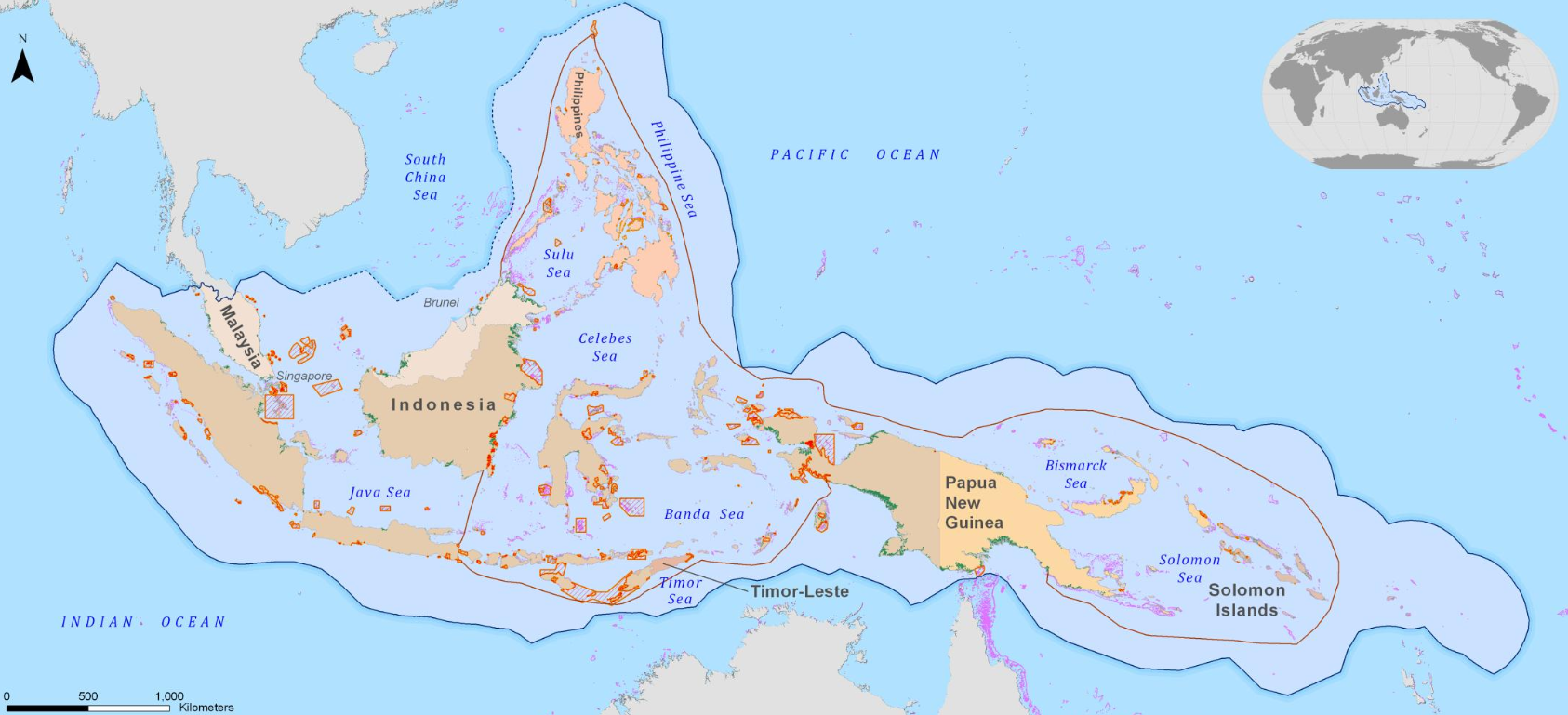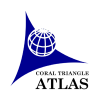The Coral Triangle Initiative

The natural environment of the Coral Triangle—and the many goods and services it provides—are at risk from a range of factors including over-fishing, land-based sources of pollution, and climate change. These factors have a negative impact on food security, employment opportunities, and the standards of living of people dependent on marine resources for their livelihoods.
On May 15, 2009, the leaders of the six Coral Triangle countries met for a summit in Manado, Indonesia and signed the declaration launching the Coral Triangle Initiative (CTI) and endorsed its Regional Plan of Action. This event marked the culmination of a process launched by Indonesian President Yudhoyono in 2007 and supported by the United States to bring the six countries together to preserve the threatened marine, coastal, and small island ecosystems of the Coral Triangle region.
Member nations of the Coral Triangle have committed to implement the five goals of the CTI Regional and National Plans of Action:
- Designating and effectively managing "priority seascapes"
- Applying an "ecosystem approach" to the management of fisheries and other marine resources
- Establishing networks of marine protected areas
- Implementing measures to strengthen resilience and adaptation to climate change
- Strengthening measures to protect threatened marine species
US Support to the Coral Triangle Initiative
Sustaining the natural productivity of the Coral Triangle for current and future generations requires a new vision. The Coral Triangle Initiative is transforming marine resource management in the region through an inter-agency, holistic approach that respects the interrelated character of ecological systems and incorporates migratory pathways, entire life cycles of species, ocean currents and financial flows.
In view of CTI’s potential for far-reaching environmental and economic benefits, the United States offers support through national and international channels. USAID promotes an integrated US response to the CTI through partnerships with the US Department of State, the US National Oceanic and Atmospheric Administration (NOAA), a consortium of environmental NGOs, and a Program Integrator contractor. In addition, USAID coordinates closely with other CTI donors, such as the Asian Development Bank, Global Environment Facility and the Australian government.
Major activities under the US Support Program to the CTI include the following:
- Assistance to the governments and stakeholders in implementing the CTI Plan of Action
- Support in establishing and developing the CTI Secretariat and national coordinating committees
- Providing access to US science and research capabilities
- Sharing best practices among the six Coral Triangle countries
